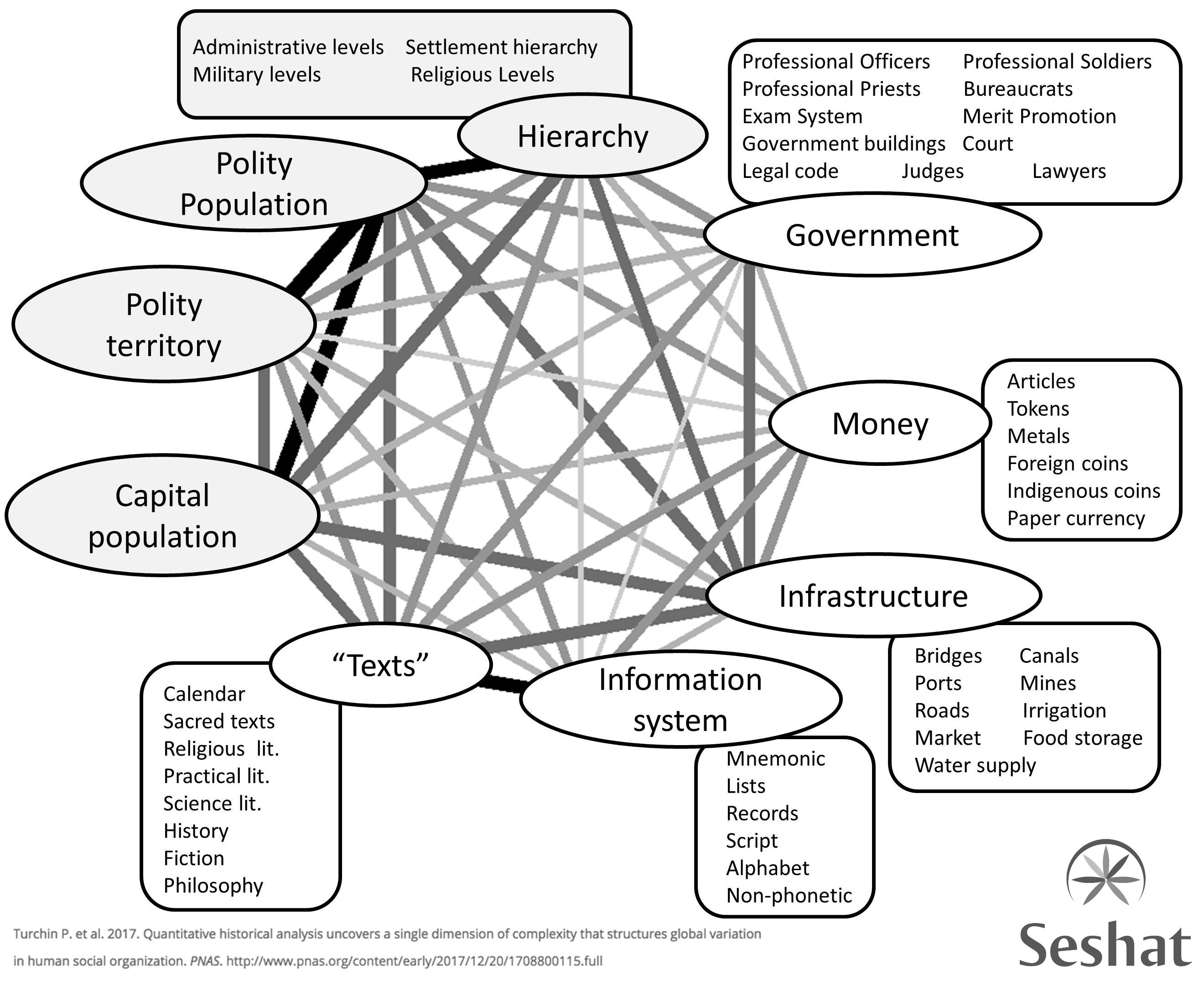I was planning on writing my first entry in this blog series on the problem of free will in philosophy and theology as it relates to Data when (providentially?) this long read in The Guardian came to my attention, via the British theologian John Milbank’s twitter feed. Written by Oliver Burkeman, it outlines the arguments of philosophers, representing a minority in their field, who hold that free will does not exist. Rather, they claim that all human intentions and actions can be reduced to bare cause and effect, the collisions of particles set into motion by the Big Bang. Even when we think that we are making a free choice (for example, between an apple or a banana from a fruit bowl), we are in fact being driven along by pre-conscious chemical interactions in our brain.
It is no surprise that this question would be particularly germane to our present moment. The volume of responses to the piece that The Guardian received are proof enough that it touched a nerve. In outlining the stakes of the free will vs. determinism debate, Burkeman centers the question of personal moral responsibility — if we have no control over our actions, then why, for example, should we punish violent criminals at all?1 Additionally, the piece suggests that awareness of an entirely deterministic universe can induce crises of the self, existential torment, and depressive episodes in unwitting victims.
I think there’s more to it than that, though. If we think of human history as a pendulum swinging between the two poles of freedom and determinism, it is fair to say we live in a deterministic age. By that I mean that we understand our condition to be decisively constrained by larger structures and dynamics that we have no control over. Moreover, we seem to despair of any agency in solving or even ameliorating our dilemmas. To give a few examples: trauma has moved to a central place in our understanding of social injustices, and it is understood that trauma leaves permanent, inescapable psychic wounds that can even be passed down and become “generational.” When people discuss grief, they tend to emphasize that one can never get over it. Racism, sexism, and other forms of inequality are now understood to be structural in nature, which means that in our interpersonal interactions we can perpetuate them even against our own intentions, shaped as they are by hierarchies that are durable and can only change slightly, if at all, under the pressure of historical forces.
None of this is necessarily wrong. I only mean to point out that our culture, specifically as it attempts to grapple with the set of social and political problems that constitute “our current predicament,” is inflected at the moment by a deterministic streak. Furthermore, this tendency — with the concerns and anxieties it entails — is present in the conversation about Data and the “impact of technology” on society. This is because technology companies use data in order to predict the future. That is what data science is: the idea that the past can predict the future. If you bought this product, you might like this other one, etc. This is even true for “generative” applications of the technology, like chat bots, which function on probabilistic models about which word should follow another, based on training from past texts. It’s easy to see why many are uncomfortable with all this, for a lot of reasons, but for the purposes of this post I would like to focus on one — it is annoying when someone else thinks they know your own intentions better than you do. It can even feel like a violation of one’s consciousness — and the spark of volition that allows us to freely make our own choices in this world.
As the title of this post suggests, this broad set of questions found expression in the West under the aegis of Christian theology, which was a project of applying philosophical tools to understanding God as revealed in the Bible. Similar debates occurred in Islam, also under the influence of Greek philosophy, and I imagine in other civilizations as well. The Hebrew Bible had treated divine power as something of a mystery (a black box algorithm, you might say), for example in the Book of Job, or as limited to distinct historical interventions in the narrative of the Hebrew people. But the infusion of Greek philosophy into Christianity, already so evident in the Gospel of John, demanded a more systematic treatment of the question, all the more so because Christianity offered eternal life to its adherents. This is why Christian debates over free will and determinism centered on predestination: the question of whether God knew and willed, even at the moment of creation and before the Fall of Man, which individual souls were to be saved. Even more troubling was the position of double predestination, which held that God also willed that individuals would remain sinners and consequently be damned.
The implications of these debates were obvious to all: if God decided the fate of all, then what role did individuals play in seeking salvation? What did this mean for morality? It was reasonable to think that God, having elected certain people as destined for heaven, would will their good deeds into existence. But what about the good deeds of people who were not elected? And did God will the sins of the damned? I don’t intend to gloss one thousand years of theological debate in this post, but rather to point out a few elements which are of particular interest to the current topic of Data. The first is to do with the reason that predestination was even a thinkable concept — the doctrine divine omnipotence. Those thinkers who emphasized that individuals’ fates were predestined tended to do so because it was required, in their minds, by divine omnipotence. (Examples include Augustine and John Calvin.) People did have free will in some limited sense, but it was irrational to think that an all-powerful God would not ultimately be responsible for decisions of cosmic significance.
In our deterministic age, meanwhile, we tend to feel powerless to shape our own destinies. This echoes the angst of Christians like Martin Luther, who despaired of his ability to will himself into sanctification before embarking on his reforming mission. But, crucially, we don’t think that all humans are powerless. On the contrary, we feel that our reality is shaped decisively by elites who wield unaccountable and vast control over others. This feeling is common all along the political spectrum, though slightly less so in the center. And of course, among this elite are tech titans who wield enormous influence through their access to our data and control over communication platforms. Their power, in some minds, verges on the divine — see the Guardian’s paraphrase of Yuval Harari’s opinion on free will, which is that it is an “anachronistic myth… rendered obsolete by the power of modern data science to know us better than we know ourselves, and thus to predict and manipulate our choices.”
To sum up: the power over all existence, including people’s innermost thoughts, was first held by God, and was then secularized and conceptualized as a material determinism governed by natural laws. Now, the capabilities of data science allow humans to usurp that power — but only some privileged humans, who were unelected and are unaccountable. In these perverse circumstances, it is no surprise that critics of the status quo on the left and right frequently describe the elite in demonological terms.
Burkeman’s article on free will does offer some relief from the grimness of it all, however. A surrender to determinism can represent a comfort to conflicted souls — this represents the second element of the predestination debate that I want to highlight. As Burkeman says, “there’s something liberating about it, too. It’s a reason to be gentler with yourself, and with others. For those of us prone to being hard on ourselves, it’s therapeutic to keep in the back of your mind the thought that you might be doing precisely as well as you were always going to be doing – that in the profoundest sense, you couldn’t have done any more.” This therapeutic relief is exactly the same as that experienced by Luther 500 years ago, when he reformulated his spiritual crisis — it was not that all his efforts at sanctification were in vain, but rather that God would freely offer him grace in spite of his failings. This insight, that he would be saved by faith rather than deeds, formed the theological core of his later career.
This type of release and surrender to determinism, commonly experienced upon the resolution of religious, philosophical, or psychological crises, is nonetheless elusive when it comes to the discourse around Data. I suppose that there are some who are optimistic about technology’s ability to solve social problems, and imagine a techno-utopia governed by the benevolent application of advanced statistical techniques. But this does not solve the problem of individual free will, its manipulation by human artifice, and the anxieties that entails.
But I have some good news to share. I am not sure whether we possess free will, but I strongly suspect that we do, and that it exists in some deep stratum of ourselves that cannot be captured by language, no matter how philosophically rigorous, nor the scientific method, no matter how advanced. But one thing I can assure you is that Data does not confer godlike powers on its experts. If free will is an anachronistic myth, then its contemporary counterpart is “the power of modern data science to know us better than we know ourselves.” This idea, which enjoys a surprising level of ubiquity on both sides of the debate over tech, does not withstand scrutiny. No one who actually practices data science seems to believe it — indeed, built into the statistical concepts that undergird data science is the inevitability of error, an irreducible stochasticity within which free will might be said to lie. Its predictive powers only work at scale, so they cannot function on the level of a divine omnipotence or natural law which governs every particle in the cosmos in perpetuity. None of this means that Data is not a powerful tool that deserves both optimistic and critical attention. Rather, it suggests that Data ought to be demystified in order to generate an accurate and useful understanding of its implications, which is the endeavor I hope to pursue further in subsequent posts.
I predict that the next entry in this blog, discussing labels, will arrive in the near future. Please share any thoughts or questions in the comments section, or email me: maxstaley at gmail dot com.
1: Philosophy is far from the only discipline that raises questions about criminal responsibility. Sociology and psychology both also suggest that your background or experiences can predispose you to commit crimes. And these factors are often raised in media coverage of crime and in criminal proceedings, particularly when a “just” punishment is being measured. Point being, deterministic thinking permeates many discursive fields and is not necessarily as exotic as the piece suggests.



